Lymphatic points in our body affect our overall health and have a more significant impact than we all know. The lymphatic system is an essential but frequently disregarded part of the complex network of bodily systems. It controls the movement of lymph, a transparent fluid that contains white blood cells that fight infections throughout our tissues, removing waste and poisons like a silent carrier. Lymphatic points are essential in this system. They are critical intersections where this fluid and its health-promoting properties meet.
Knowing and using these lymphatic points is not just about taking care of your body; it’s also about revitalization, which means you may access a natural, often unrealized potential for better health and wellness. Whether your goal is to reduce edema, strengthen your immune system, or feel more energized, activating your lymphatic points can be life-changing.
Join us as we investigate lymphatic points and how they can help us. In this blog, we’ll discuss these topics in detail, explaining why they’re essential and providing practical methods you can use to benefit from them. Let’s explore how little actions can significantly impact and revitalize your body from the inside out.
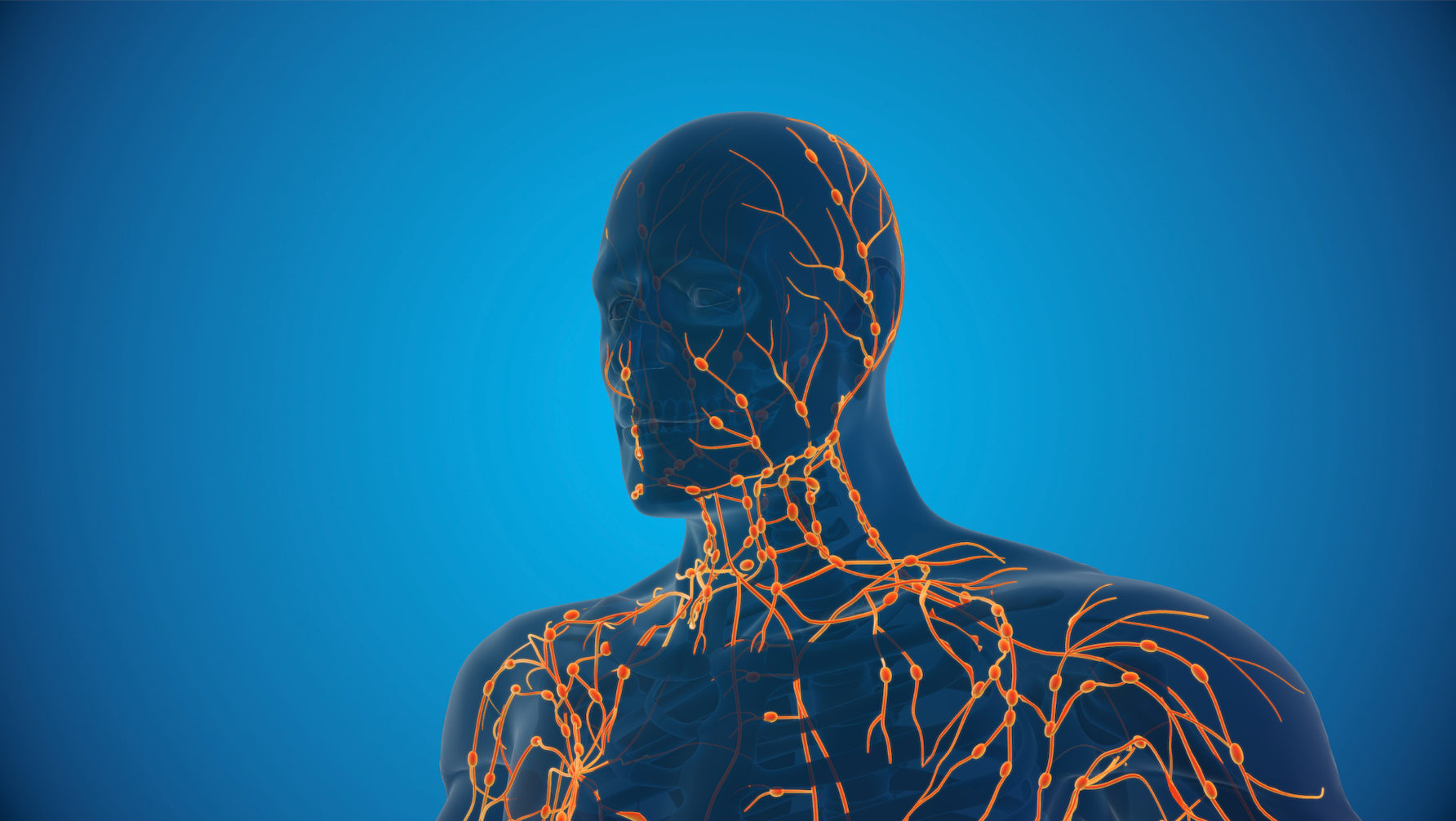
What is the Lymphatic System
The lymphatic system is essential to our body’s defense and waste elimination systems. It is a network of organs, nodes, lymphatic vessels, and lymph vessels that work together to maintain fluid balance and protect the body from foreign invaders. The lymph fluid, made up of proteins, lipids, water, cellular debris, and crucial white blood cells, plays a vital role in our immune system. Lymph nodes, filters, and vessels help remove waste from the cells and keep the fluid clear. Any disruption to this system, such as blockages, can lead to fluid retention and swelling, underscoring the importance of this system in maintaining overall health.
Benefits of Lymphatic Stimulation
Improving Overall Health
The lymphatic system is crucial to the body’s immune response and fluid balance. Lymphatic drainage massage is designed to enhance lymphatic circulation, offering therapeutic relief for conditions such as lymphedema. This gentle massage technique aims to improve blood flow and reduce edema by promoting the movement of lymph fluid back into the bloodstream. Lymphatic drainage massages are a gentle technique that encourages the drainage of lymph nodes and the movement of lymph fluids around the body.
Relief from Chronic Conditions
Rheumatoid arthritis (RA) is a condition that often includes symptoms such as swelling, joint pain, and stiffness. Recent studies suggest that individuals with RA may have impaired lymphatic function, highlighting the importance of lymphatic stimulation in alleviating these symptoms. Lymphatic drainage massage can also help increase blood flow in people with chronic venous insufficiency (CVI). Regular lymphatic massage can improve overall joint mobility, reduce discomfort from inflammatory conditions, and address localized swelling.
Enhanced Immunity
Stimulating lymphatic points has a significant effect on our immune system. The lymphatic system carries white blood cells and antibodies throughout our bodies, helping to protect us from infections and diseases. By applying pressure or massage techniques, we can activate these points and help our immune system get more robust. This might reduce how often we get sick and how bad the illnesses are.
Detoxification
Our bodies are constantly exposed to poisons, chemicals, and pollutants, which strain our natural detoxifying systems in the modern environment. The lymphatic system is vital for filtering toxins and waste products from cells. By stimulating lymphatic sites and promoting overall cellular health, we can help eliminate metabolic waste products.
Improved Blood Flow
Healthy lymphatic circulation is important for maintaining good blood flow and heart health. Gentle massage techniques can help get the lymph fluid moving, which boosts blood flow and brings more nutrients to your body’s tissues. This helps the healing process and reduces the risk of chronic diseases related to poor circulation.
Swelling Reduction
Swelling, also known as edema, can happen for various reasons, such as injuries, surgeries, and medical conditions. Lymphatic drainage massage helps reduce edema by removing excess fluid and irritation from the swollen areas. This natural method promotes faster healing and relief from discomfort.
Additionally, lymphatic drainage massage can help reduce swollen lymph nodes by promoting the movement of lymphatic fluid out of the swollen areas.
Preparing for Lymphatic Stimulation
It’s important to prepare the body before starting a lymphatic stimulation session for an effective massage. To relax and activate the lymphatic system, begin with a deep breathing exercise. Intentionally taking deep breaths helps move lymphatic fluid throughout the body and provides oxygen to tissues.
Also, it’s helpful to open up the chest to promote lymphatic drainage. Simple stretches or exercises that open the chest cavity can improve circulation and lymph flow. These initial steps enhance the overall effectiveness of the lymphatic stimulation and create a mindful atmosphere for the upcoming therapy session. Preparing the body with these simple activities helps provide a more beneficial and rejuvenating experience.
Lymphatic Drainage Massage Techniques
Manual Methods
Effective lymphatic drainage massage is based on manual lymphatic drainage (MLD) techniques. This light, rhythmic massage stimulates the lymphatic system to encourage the body’s natural lymphatic fluid movement. Finding a massage therapist with specialized training in lymphatic drainage massage is crucial to ensure safe and effective treatment.
Massage therapists with training in manual lymph drainage (MLD) employ particular hand techniques, like circular and soft strokes, to encourage lymphatic drainage and circulation. Pressure is applied methodically to aid in edema reduction, release built-up lymph fluid, and support the immune system. However, deep tissue massage can be too heavy for someone with lymphedema, so it is important to avoid assuming that a person with this condition can go to a massage therapist for deep tissue massage.
Acupressure and Reflexology
Integrating reflexology and acupressure concepts can increase the advantages of lymphatic drainage massage. The carefully placed acupressure points along meridian lines linked to lymphatic drainage facilitate lymphatic fluid flow and encourage detoxification.
By gently pressing on these particular locations, people can improve the body’s natural healing processes, release blockages, and boost lymphatic function. In contrast, reflexology employs the hands and feet’s reflex zones to represent many organs and systems, including the lymphatic system. In addition to promoting lymphatic drainage, massaging these reflexology areas lowers stress levels, promotes relaxation, and improves general health.
Incorporating reflexology and acupressure into lymphatic drainage massage treatments amplifies their healing potential by addressing health’s physical and energetic dimensions.
These methods, which can be used professionally or as part of self-care routines, provide a comprehensive strategy for enhancing lymphatic health and maximizing the body’s natural detoxifying processes.
Upper Body Techniques
Neck
Start by applying light pressure in a “J” form on the front of the neck. This approach encourages fluid flow toward the neck’s lymph nodes, stimulating lymphatic drainage. Applying moderate pressure and gentle strokes to promote blood flow and release stress in this delicate area. Next, concentrate on massaging the sides and nape of the neck a massage. This aids in the filtration of lymph fluids and relieves any congestion brought on by tense muscles or bad posture. Use circular strokes and light kneading movements to increase lymphatic flow and encourage relaxation.
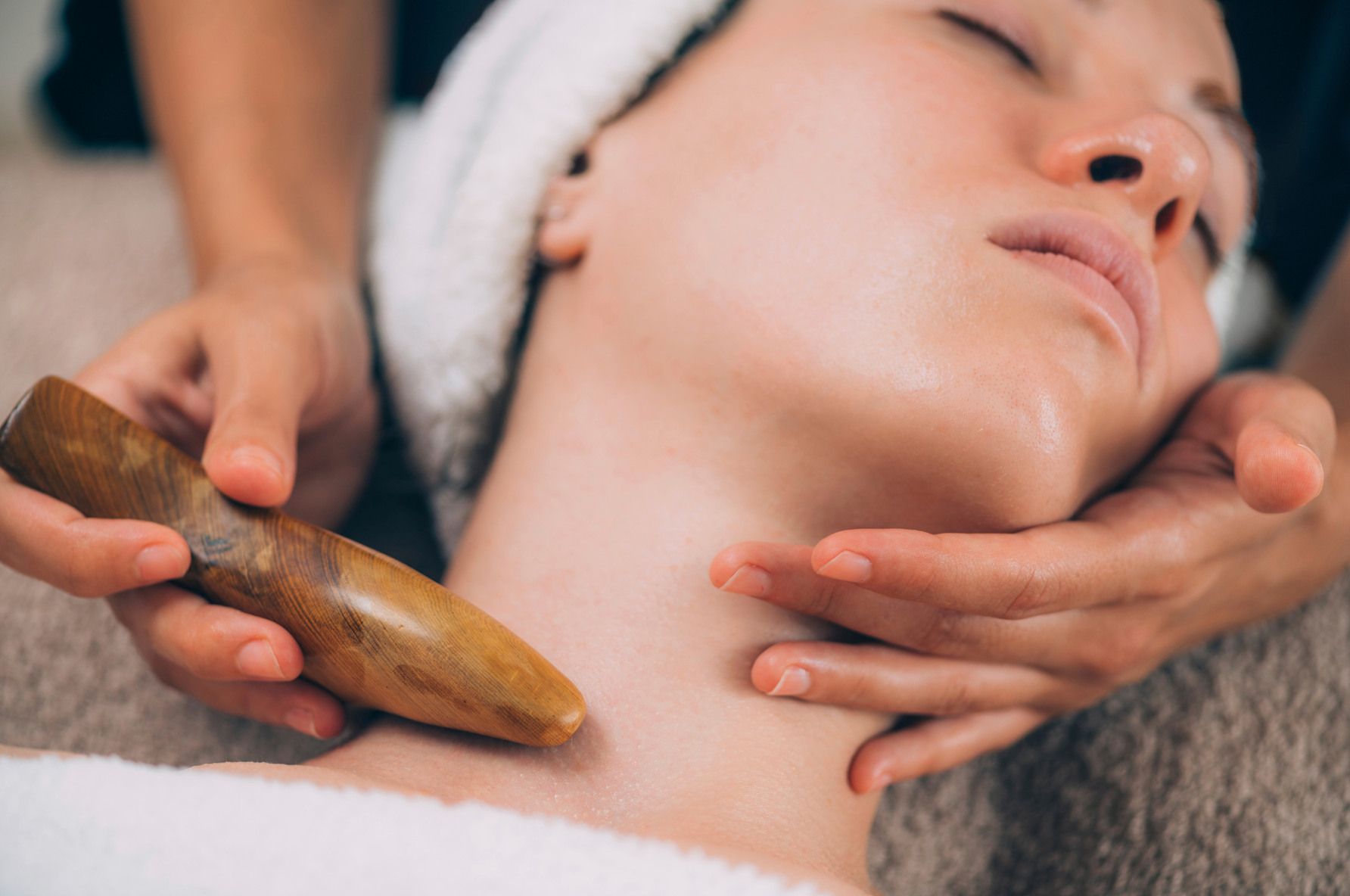
Upper Arms, Shoulders, and Chest
The first step in adequately draining lymph fluid from the chest is gently pumping the area with your palms. Start in the middle of the chest and work outward toward the underarms. This movement aids in detoxifying and reduces swelling by guiding lymph fluid toward the lymph nodes under the arms. Use your fingertips to make circular motions on the shoulders to encourage lymphatic circulation. Pay attention to the tops of the shoulders and the space between the shoulder blades, which are familiar places for tension to build up. These methods improve flexibility and relieve tense muscles while also encouraging fluid movement.
When working on the upper arms, use long, sweeping strokes from the elbow to the shoulder. This method improves circulation and makes it easier to remove metabolic waste by encouraging lymphatic drainage from the arms. Use different pressures according to your comfort level to get the most out of the massage.
Lower Body Techniques
Upper and Lower Leg Massage
Start by lightly massaging the upper legs, working your way down to the knees from the hips. Encourage the passage of lymphatic fluid toward the groin area’s lymph nodes using lengthy, sweeping strokes. This method improves circulation in the hamstrings and thighs while reducing fluid retention. Proceed with similar movements on the lower limbs, emphasizing the calves and shins. Pay particular attention to potential tension and fluid accumulation spots, and gently push such areas to encourage lymphatic drainage. Applying circular strokes and kneading motions can help release lower leg muscular tension and improve circulation.
Ankles and Foot
Continue to massage the feet and ankles to help relax and release accumulated lymph fluid. Starting with the ankle joints, massage them lightly in a circular motion in the direction of the lymphatic system. This aids in reducing swelling and improving ankle mobility. After that, focus on massaging the foot, giving the arches and heels extra attention. The reflexology points on your feet correspond to different organs and systems, including the lymphatic system. Use your thumbs to apply pressure along these lines. Squeezing and gently massaging the toes might help reduce swelling and improve comfort.
Technique Sequence
Remember, it’s important to work methodically when massaging the entire lower body using lymphatic drainage. Start at the top of the leg and move down toward the foot. This step-by-step approach ensures that the lymphatic fluid circulates completely, efficiently cleansing the entire lower body.
The Role of Lymph Nodes in Lymphatic Drainage Massage
Lymph nodes are small structures in the groin, abdomen, neck, and armpits that are essential filters in our body’s lymphatic system. They help remove harmful substances and waste cells from the lymph fluid, which is essential for our immune system and overall health.
During lymphatic drainage massage, gentle pressure and tissue manipulation help the lymphatic flow toward these nodes. This aids the body’s natural detoxification process and eliminates toxins and waste. Sometimes, lymph nodes can swell due to abnormalities in their function, causing soreness or swelling. Targeted lymphatic drainage techniques can help reduce this swelling and improve overall well-being by restoring proper lymphatic circulation.
Recognizing the crucial role of lymph nodes highlights the importance of including lymphatic drainage massage in comprehensive health routines. These treatments enhance lymphatic function, support detoxification, and help maintain a strong and balanced immune system, promoting a healthier and more energetic lifestyle.
Maintaining a Healthy Lymphatic System
Taking care of your lymphatic system for your overall health is essential. You can significantly improve your lymphatic system and your well-being by using daily lymphatic point stimulation. Here are some helpful tips to help you include lymphatic point care in your self-care routine:
Start using gentle, self-lymphatic massage techniques during your bedtime or morning routine. Use gentle pressure and circular motions on your neck, armpits, and groin area, essential parts of your lymphatic system. This will help your lymphatic flow and help your body get rid of waste materials and toxins.
Being consistent is vital. To keep your lymphatic system healthy, do lymphatic point stimulation regularly. Depending on your lifestyle and health goals, you can choose to do these routines every day or a few times a week. Please pay attention to how your body feels and change how often you do it to help your overall health.
You can use extra materials and tools to better understand and apply lymphatic point methods. Look for pictures, how-to videos, or reliable sources with clear instructions on the right techniques and focused lymphatic stimulation. These resources can help you learn more and improve your self-care.
Incorporating lymphatic point care into your daily routine doesn’t have to be complicated. Setting aside a bit of time each day for these simple actions can help your lymphatic system clean itself naturally and promote a healthier, more balanced you. Remember that taking proactive steps to support your lymphatic health can help you live a more vibrant life and improve your overall wellness.
Foods that Promote Lymphatic Drainage
Eating foods high in antioxidants, moisture, and anti-inflammatory qualities can help improve lymphatic drainage. The following foods may aid in the promotion of lymphatic drainage:
Citrus Fruits: Vitamin C and antioxidants found in oranges, lemons, limes, and grapefruits boost immune system performance and promote the health of the lymphatic system.
Berries: Packed with phytochemicals and antioxidants, blueberries, strawberries, raspberries, and blackberries can help detoxify and reduce inflammation.
Leafy Greens: Rich in chlorophyll, leafy greens like spinach, kale, and others aid in detoxification and lymphatic system cleaning.
Cruciferous Vegetables: The sulfur compounds found in cabbage, cauliflower, broccoli, and Brussels sprouts assist liver function and aid in the body’s detoxification.
Omega-3 Rich Foods: Foods rich in anti-inflammatory omega-3 fatty acids include walnuts, chia seeds, and flaxseeds.
Herbal teas: Green, dandelion and ginger teas can help with hydration due to their cleansing qualities, which aid in lymphatic drainage.
Healthy Fats: Good fats, which are found in avocados, olive oil, and coconut oil, transport nutrients and support cellular health.
Water: The lymphatic system depends on proper hydration to function. Getting adequate water into the body aids in the removal of waste and pollutants.
Probiotic-Rich Foods: Fermented foods like sauerkraut, kefir, vegan yogurt, and others have good bacteria that promote gut health, which is connected to the immune system and lymphatic system function in general.
Turmeric: This spice can improve lymphatic function and general health because of its anti-inflammatory and antioxidant qualities.
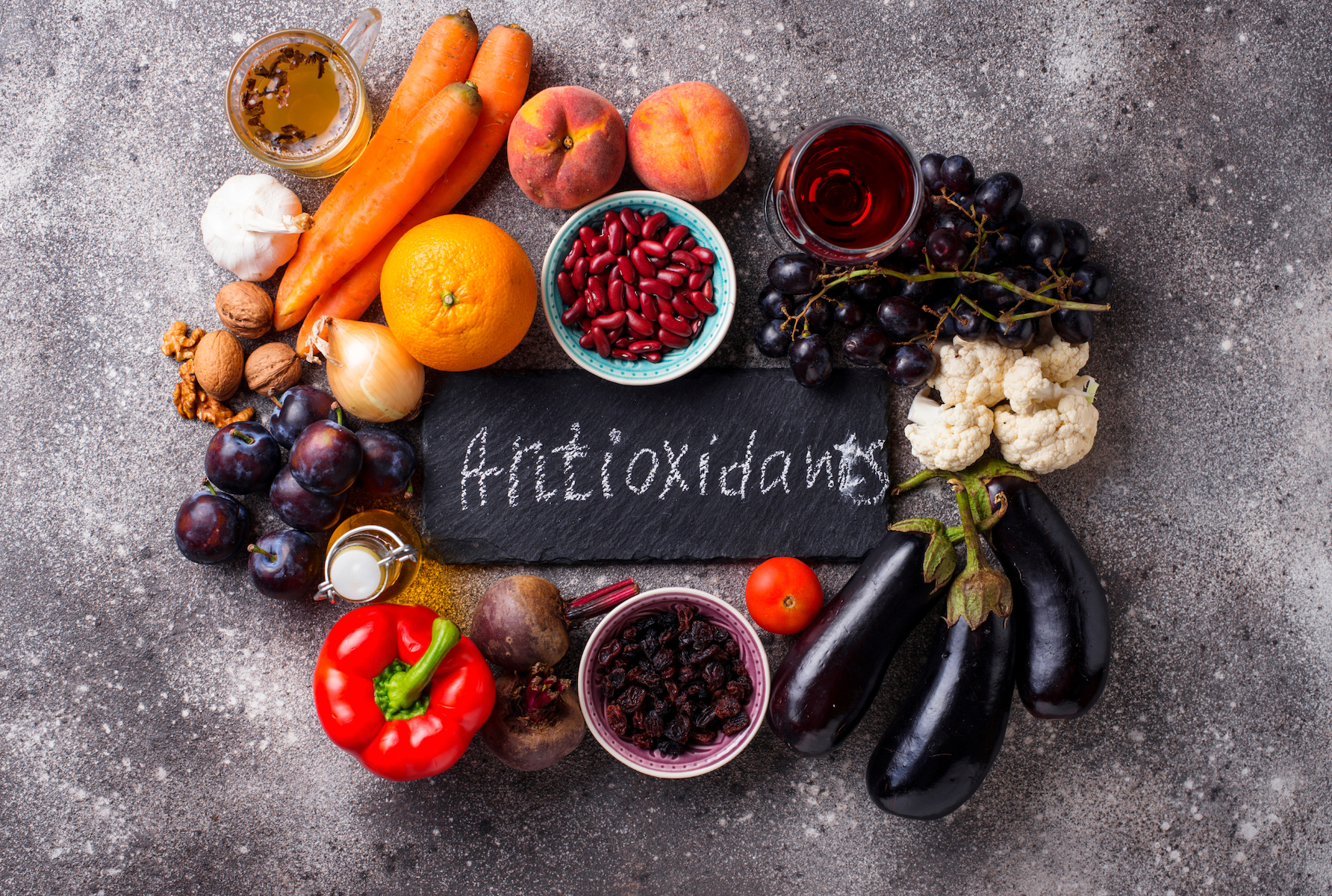
Well Of Life LymphFlo Supplement
The Well of Life LymphFlo with Fulvic Minerals Supplement is a specially blended herb blend that includes red peony root, cleaver’s herb powder, fulvic minerals, and pau d’arco powder to promote the health and function of your lymphatic system.
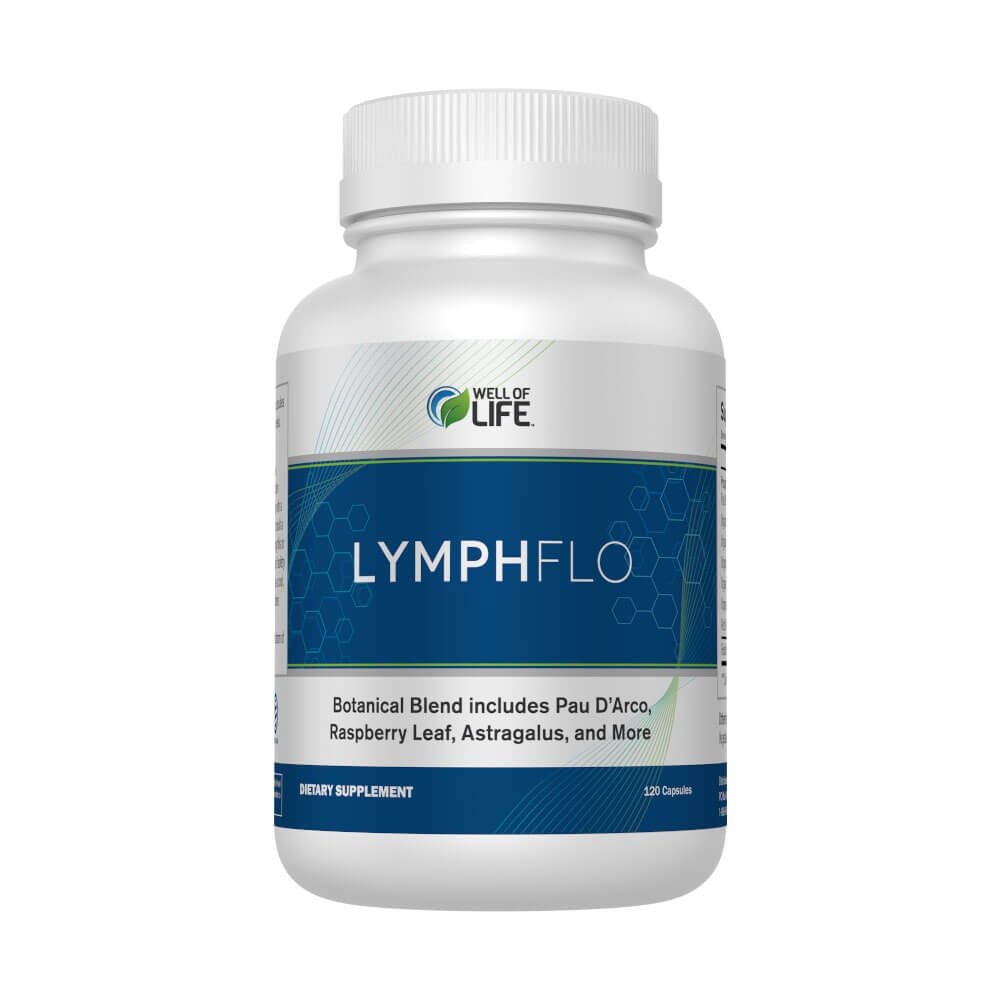
Well of Life Turmeric and Ginger Supplement
Well of Life offers an amazing supplement containing turmeric, ginger, and BioPerine. This supplement aids in reducing inflammation and supports the immune system.
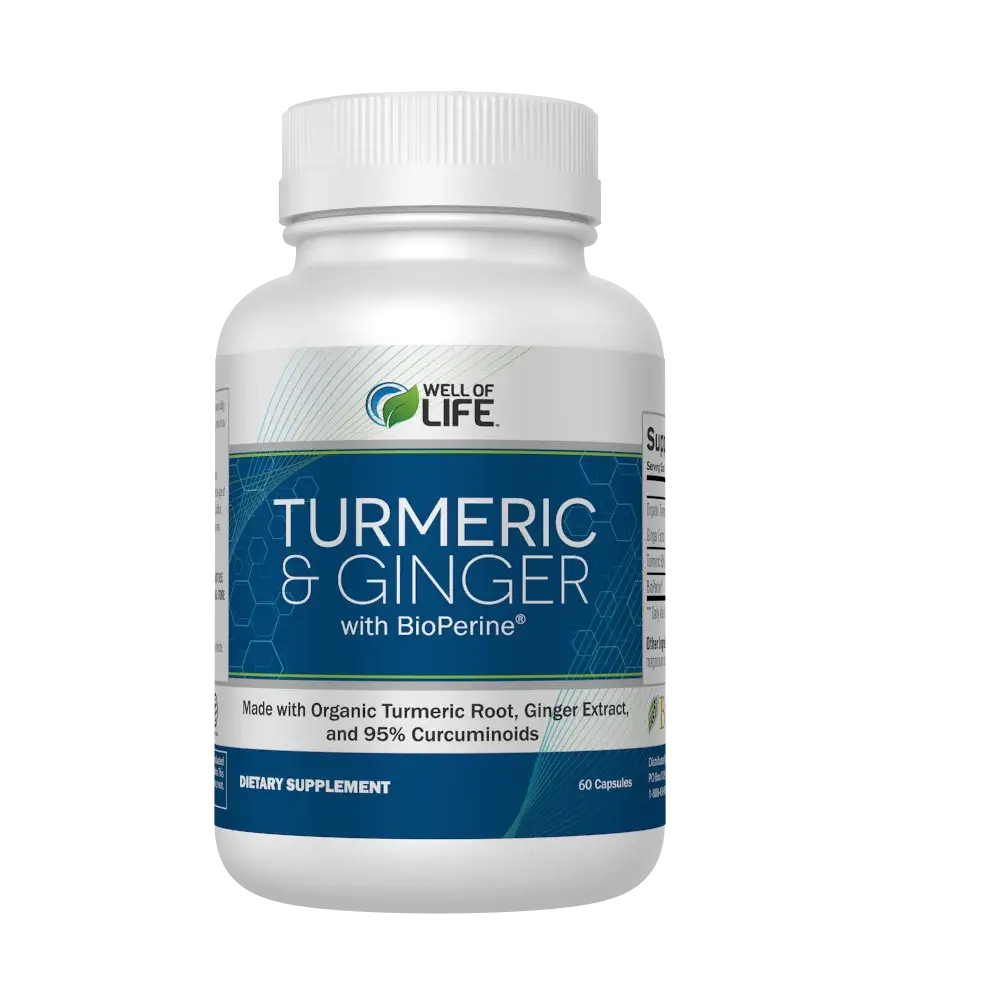
Key Takeaways
Understanding the importance of lymphatic sites in the body is crucial for overall health. The lymphatic system helps our immune system and removes waste by distributing lymph, a clear fluid containing infection-fighting white blood cells, throughout our tissues.
Activating these lymphatic sites has the potential to improve your health. Working with these points, learning safe self-massage techniques, and seeking advice from a certified lymphedema therapist can help promote internal body rejuvenation.
Maintaining good lymphatic health is essential for overall well-being. Integrating lymphatic point stimulation into your daily routine can help boost your immune system and natural cleansing. By committing to these habits, you give yourself the ability to live a more vibrant and healthy life.


